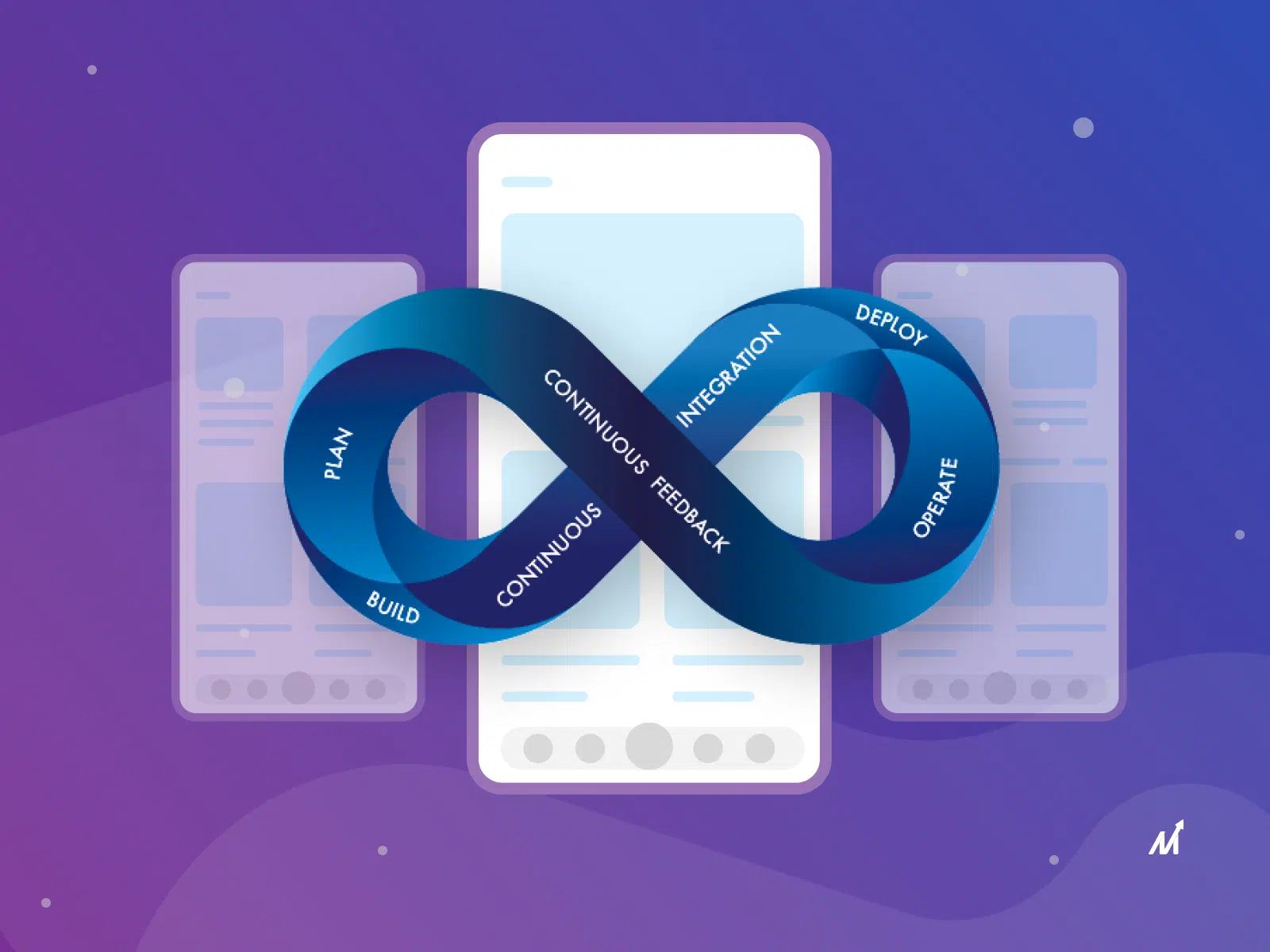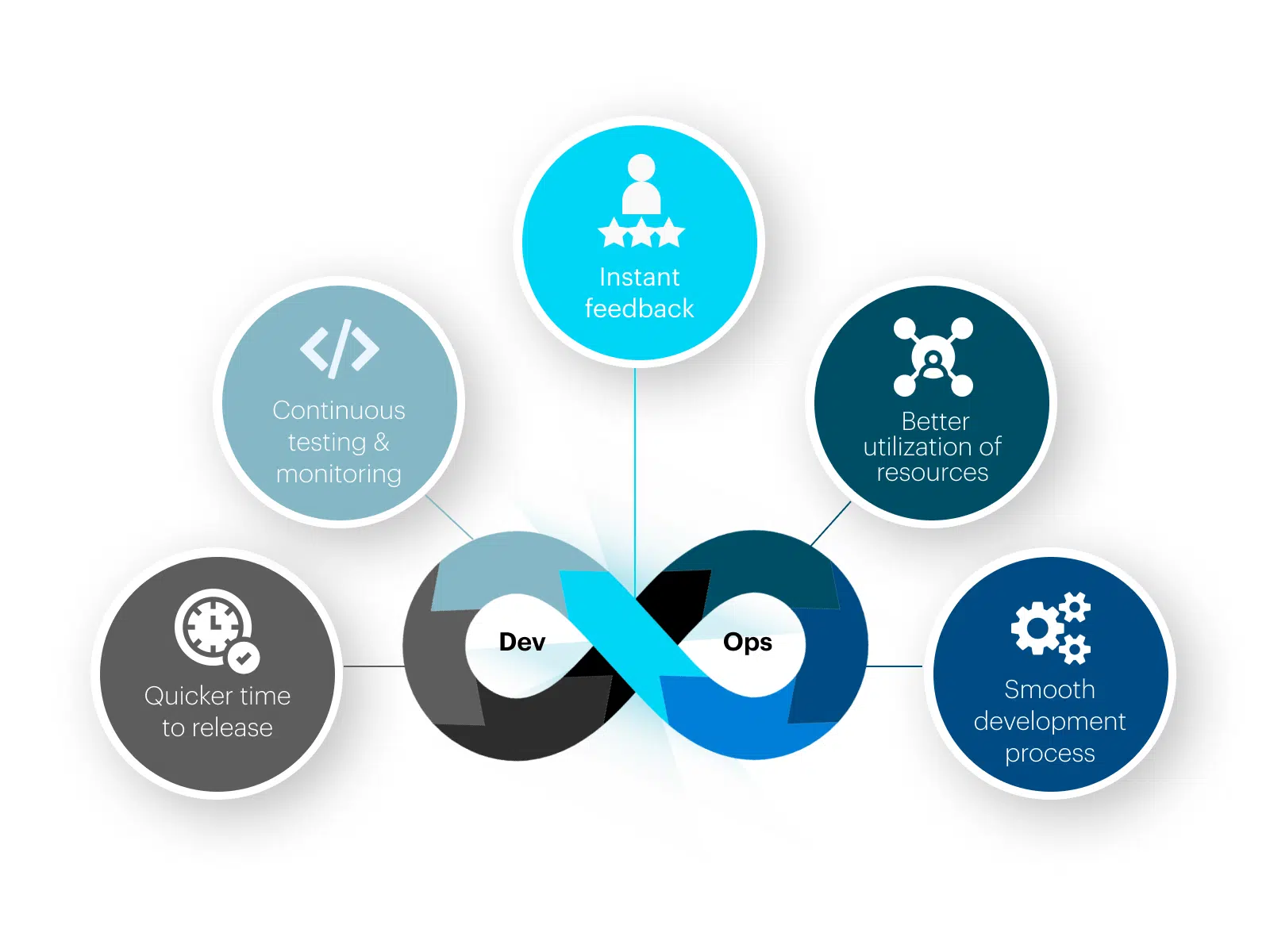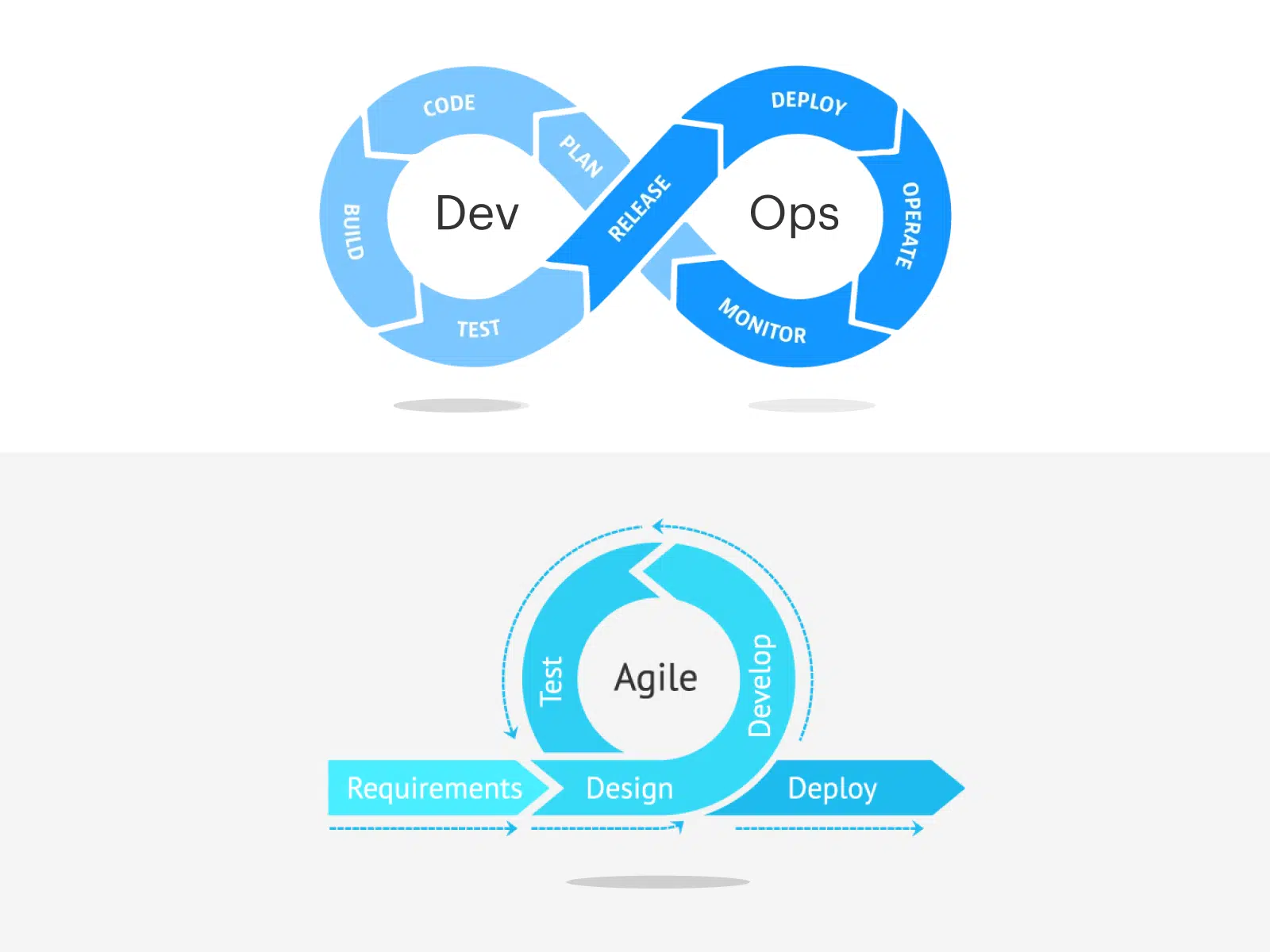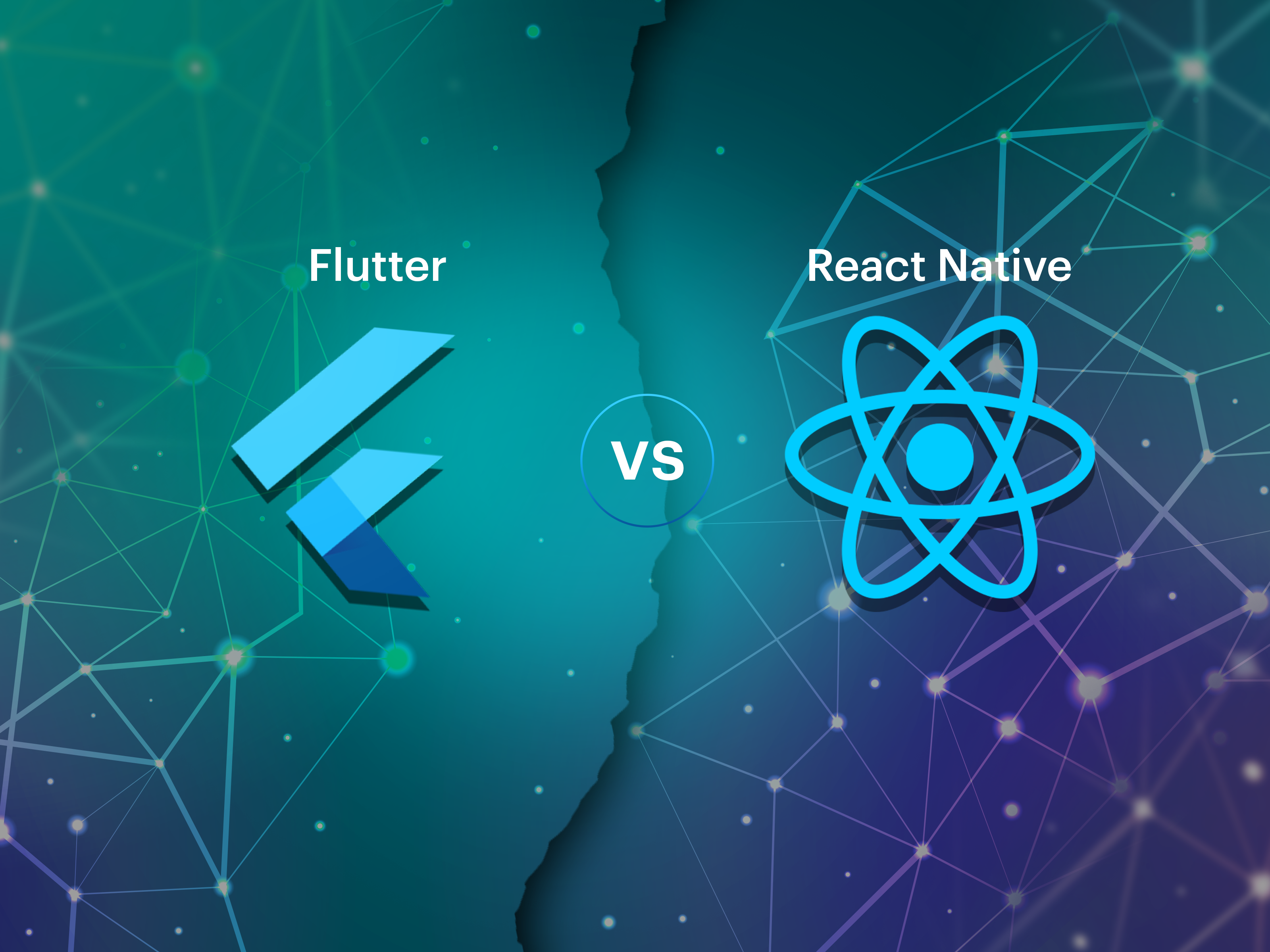DevOps for mobile app development: Introduction
In a world where everything is moving with lightning speed and work is done in fractions of seconds, it’s evident that the user’s time is given the utmost value. Thus, even in software development, certain agility and speed are expected to deliver the best product in the least possible time. 50% of organizations state that it takes hours, days, or weeks to fulfill the average access request. So what role does mobile DevOps have in the same?
The software development life cycle contains various stages, from development to testing to deployment, operations, and maintenance. DevOps tries to achieve the goal of synchronizing all these stages and ensuring that the product reaches the market in the shortest period.
As we can infer from the term, DevOps is derived from the combination of both words: Development and Operation. It involves removing the traditional barriers between the development and operations process to compete more efficiently and smartly in the market. By 2028, the market size for DevOps will reach over $30 billion, growing at a CAGR of over 20% from a value of over $7 billion in 2021.
Mobile DevOps targets helping you build and deploy mobile and web apps using a combination of tools, platforms, and practices. It also ensures that the flow of operations in the app development process is smoother.
DevOps in mobile app development
With more than 200 billion app downloads being done every year, the mobile app industry is clearly at an all-time high, which further presses on the importance of DevOps in this industry to provide the user with a fast and reliable experience.
Mobile DevOps aims to develop an agile approach throughout the development and operations phase, to reduce the time to market without compromising on the app’s quality.
Initially, the app and the idea focused more on cost, security, and maintenance. People have shifted from the traditional methods and started concentrating on these areas to deliver a higher value to the customers and fulfill business goals.
DevOps is based on the principle of CI/CD (Continous Integration/ Continous Delivery). It has resulted in the automatic delivery of features, faster maintenance, and enhanced debugging. The goal of CI/CD is to minimize the team’s manual effort and automate the process as much as possible to put the code securely from the developer’s hands to the user in a deliverable form.
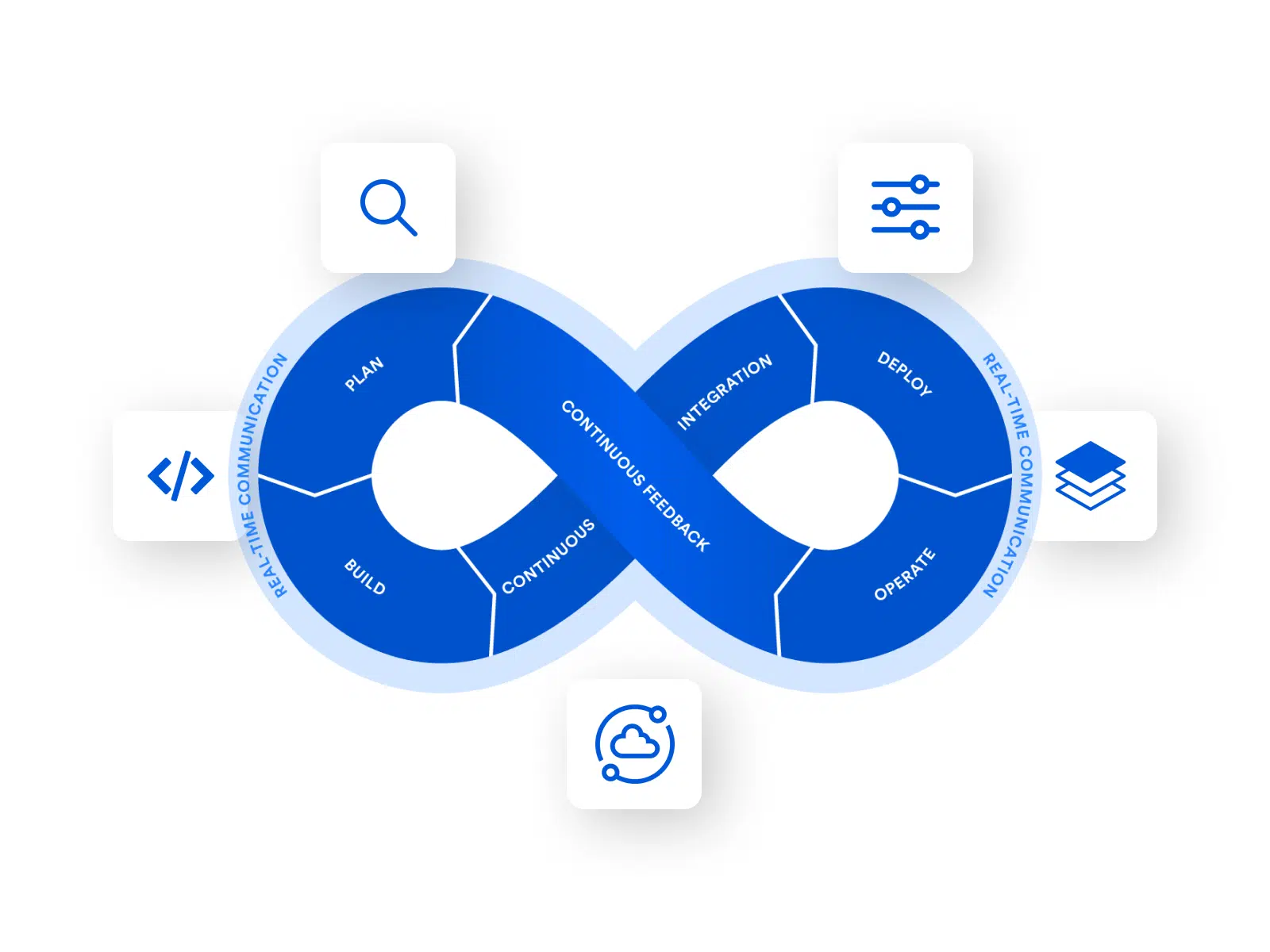
More minor changes are released over smaller periods to automate the pipeline.
This core component proves to be quite beneficial as it reduces the load on the development time, saves time, and results in smoother operations and better code quality.
The mobile DevOps methodology helps in faster updates, bug features, and features to provide the user with the best experience possible. There might be times when a brilliant and fully-functional app with many features fails to perform in the market. It might be because the DevOps portion was compromised, and a traditional method was followed.
In the end, there would be frequent and multiple glitches, poor collaboration between the times, a lengthy integration process after debugging or testing, discouraging users from using the app after some time, and poor maintenance.
What are the major advantages of DevOps in mobile app development?
1. Quicker time to release
For real-time delivery, DevOps essentially improves the communication and collaboration between different teams, which ultimately are responsible for the whole mobile app development cycle. This, along with constant iterations and phase-wise release, helps to release the product much faster and more efficiently.
2. Continuous testing and monitoring
Problems can occur anytime during development and after the deployment of the app. Continuous monitoring and testing help to keep a check on memory failure, crashes, and bugs. It also ensures device compatibility by running various automated tests, which is manually impossible to do, considering the vast number of configurations and OS versions on which the app might be run.
3. Instant feedback
This is a significant advantage for both the clients and the developers, as it helps them to solve their problems faster. This way, the team stays in the loop and can quickly fix bugs or implement new features. Instant feedback becomes integral to the app’s smooth functioning and enhances the user experience due to its quick delivery and detection.
4. Better utilization of resources
Resources, be it in the form of code or human resources like the development and Q/A team, also work better with the help of DevOps. It helps to maximize their utility and extract the best performance they can. Automating, managing source code, delivering faster, and releasing frequently ensures the stability of the work environment and eliminates inconsistencies within it.
5. Smooth development process
DevOps results in the development life cycle becoming more transparent, operational, and efficient. Process delays due to poor communication between teams, delay in user feedback/ integration of better code, or tedious manual testing are negligible, and the user-client interaction is much better, aside from the intra-team communication.
How is DevOps different from agile app development?
Even though these terms are used interchangeably quite a few times in the industry, they differ in their approach and delivery.
DevOps and Agile App DevOps refer to software development methodologies that aim at a faster time to market and efficient delivery.
DevOps refers to the collaboration between the development and operations team to look after the end-to-end software engineering process, which includes; prototyping, developing, deploying, testing, and maintenance.
Agile refers to the continuous iterative approach, which focuses on collaboration, customer feedback, and small and rapid releases for developing the software.
In DevOps, each team has a different set of skills that they utilize by working together, whereas, in Agile development, the small group is required to be equally skilled in a wide range of areas.
DevOps focuses more on automation of processes and constant testing and delivery. Agile App Development targets mainly the development phase instead of the overall strategy and believes in small changes continuously.
Since DevOps is a collaborative and combined approach of different practices and tools, there is no such framework which it works upon. On the other hand, Agile App Development is based on frameworks such as Scrum and XP to carry out the methodology.
Mobile DevOps is more efficient in delivering business efficiency, whereas Agile App DevOps focuses more on the app’s functionality.
The mobile DevOps challenges
Given the speed and the continuous delivery in DevOps, there might be a few challenges that come up:
1. Keeping up with the ever-changing user demands
The abundance of apps and constant innovations have increased the customers’ demands and expectations, which might become tough to fulfill. Balancing supreme quality, fast delivery, and keeping up with the latest trends is difficult. Businesses have to now focus on improving the app quality constantly and integrating new updates to help compete with the other apps in the market.
2. Considering all hardware and software specifications
There are many companies today, instead of one or two tech giants dominating the market. This has resulted in numerous hardware and software specifications, especially for mobile phones. Users are constantly updating, but not all, which results in a diverse customer base with different requirements. DevOps might fail in some specifications which are not that commonly used, which again delivers a poor user experience and defeats the purpose.
How to Implement DevOps for mobile app development?
To provide the best user experience and exploit the app’s functionality to the maximum, it’s evident that the knowledge of DevOps is reasonably necessary.
It’s the integration of people, processes, and tools to develop an app that performs well in the market and with the customers and helps the development and operations team with their manual tasks.
There are several fundamental principles to keep in mind when implementing mobile DevOps. Creating, amplifying, and working on feedback loops is quite essential, and it’s the basis on which the 24*7 app delivery and smoothness can be provided.
Experimentation is crucial for maintaining a bug-free, advanced, and updated app.
We at Markovate aim to give your enterprise the best possible mobile app development service solution. Using our team, we will provide you with a scalable, secure, and efficient app. We take care of all the stages in the app development cycle, along with the provision of different models which suit your business requirements. Markovate ensures that you get the best possible version of your application!
DevOps for mobile app development: FAQs
A. What is the primary goal of DevOps?
The primary goal of DevOps is to accelerate the process of app production and create more reliable apps with an optimal development strategy that focuses on faster speed and better quality. Moreover, it also works towards constant integration, development, feedback, delivery, and even deployment.
B. What are DevOps values?
DevOps Is based on the values of collaboration, transparency, innovation, and communication. Apart from these, other core values also include end-to-end workflows, CALMS framework, continuous improvement, and customer-centric actions.

